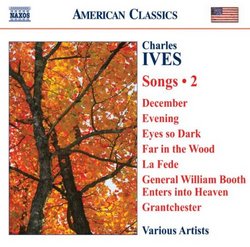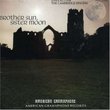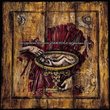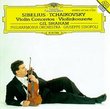| All Artists: Ives, Baty, Berman, Gardner, Plenk, Trudel Title: Songs 2 Members Wishing: 0 Total Copies: 0 Label: Naxos American Original Release Date: 1/1/2008 Re-Release Date: 7/29/2008 Genre: Classical Styles: Opera & Classical Vocal, Historical Periods, Modern, 20th, & 21st Century Number of Discs: 1 SwapaCD Credits: 1 UPC: 636943927021 |
Search - Ives, Baty, Berman :: Songs 2
CD DetailsSimilarly Requested CDs
|
CD ReviewsThe bar remains high, despite one or two disappointments Dace Gisclard | Houston, TX | 08/17/2008 (4 out of 5 stars) "Ives's songs are routinely assigned nowadays in university degree programs. Unfortunately, as is the case with most composers, what is actually performed constitutes only a fraction of his vast output, i.e., the same dozen or so songs are programmed ad nauseam, and the rest are ignored. Hopefully, this affordably priced and well-performed series will help to change that situation. At least half of the songs here are unfamiliar to me, and that gives me the delight of discovery!
Some listeners may be surprised to encounter Ives setting French, German and Italian texts, but such is the case here. Even Fischer-Dieskau thought the setting of "Feldeinsamkeit" compared more than favorably with that of Brahms. It reminds me of Wolf's chromatic adventurousness. Had I been told that "Elegie" (a setting of Louis Gallet) was a newly-discovered melodie by Chausson or Hahn, I would have believed it! I particularly like the way these young performers--few of them could be much over 30--seem to be "channeling" the mindset of Ives's era. The expression of patriotism (in college intellectual circles, at least) is nowadays considered, sadly, to be in bad taste. Here, the patriotic sentiments might be a bit jingo but are not "kidded," or disclaimed with a dualistic wink at the audience. The sentimental ballads, too, are sung with convincing sincerity. The leering promiscuity that cheapens much of our contemporary expression of so-called "love" would be out of place here. On the other hand, Ives's wildest rhythmic and atonal experiments are conquered by these capable performers with an ease that belies the daunting challenges. As with Vol.I, I withheld the fifth star because of a few disappointments: first, since this series will progress through the songs in alphabetical order, I'm surprised that "Duty" is not included here. Next, although I personally prefer "The Greatest Man" sung by a female voice "en travestie," or, better still, a boy treble--there are kids today that can easily toss off this song. The tenor here does his best, but sounds a little long in the tooth to be expressing such boyish hero-worship. One might say it's an adult's remembrance from childhood, but the eulogizing parts are sung in the PRESENT tense--but that's just my personal taste. A more serious complaint is what seems to me the wrong-headed interpretation of "General William Booth Enters Into Heaven." Yes, it's just ONE song, but it's one of the Everests of the Ivesian canon. There's nothing wrong here with the actual execution. I've played the piece and know just how transcendentally difficult it is. Both performers receive well-earned top marks for technical accuracy, but I disagree with the singer's interpretive slant. Perhaps I'm misinterpreting Lindsay's great poem, and Ives's intentions, but I DON'T see this as a eulogy to Booth, as the notes (I think wrongly) describe it. Far from it, it is an indictment of "personality preacher" cults. Here, not only do the zealots confuse the sun with the finger pointing to it (Booth), but the finger begins to believe IT is the sun. Jesus is ignored ("Booth saw not") as Booth and his followers march "round and round" the square, immersed in the contemplation of their own self-righteousness. But it is Jesus who performs the miracle at the end of the song. The present performance comes off as an earnest eulogy of Booth. Perhaps wasn't the singer's intent, but that's the way it sounds, and that is certainly NOT the theme of the poem. Give me Marni Nixon and John McCabe--a performance that projects the ugliness of shrieking extremism in ANY ideology, not just the "Christian" one of the present case. This isn't a benign depiction of the "quaint" religious fads of a bygone era, and shouldn't sound that way. I wouldn't care so much about this if "Booth" weren't such an important work. Despite these probably very personal objections, again, thanks to NAXOS for bringing forth this series that will be useful to students and teachers alike, at a price that shouldn't break even a student budget! P.S. The booklet contains detailed notes on each song, but texts are not included. Those offered on the NAXOS website are incomplete, although there are many websites offering art song texts. Also, the booklet miscredits track 10 to the tenor who sings the next track. To these ears, it sounds like the mezzo-soprano who sang track 9! " |







![Across The Universe [Deluxe Edition]](https://nationalbookswap.com/cd//m/51/1251/1241251.jpg)



